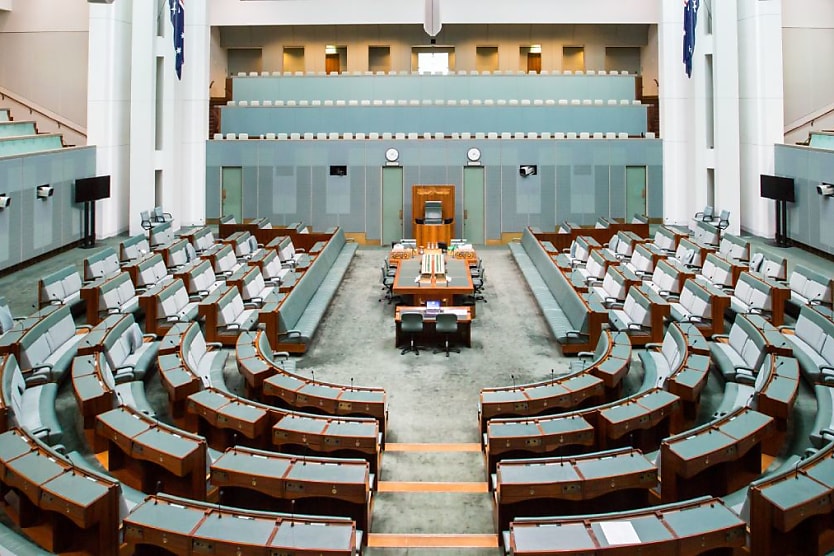Law Council takes issue with ‘equal access’ sexual harassment bill
SHARE THIS ARTICLE

Should a proposed amendment to federal discrimination law clear Parliament, the Law Council of Australia says respondents to sexual harassment claims might be unfairly burdened.
The Law Council of Australia (LCA) has expressed concerns that removing the financial barriers for applicants bringing workplace sexual harassment and discrimination cases would unfairly tilt the balance in favour of the applicant.
Despite being “sympathetic” to the reasoning behind the bill, the LCA said its concerns about the likelihood of excessive “unmeritorious” claims and other “arbitrary and unintended consequences” of the bill were too great. Instead, it proposed its own costs reform.
These and similar issues were raised in the LCA’s submission to an inquiry into the Australian Human Rights Commission Amendments (Costs Protection) Bill 2023.
The bill
In his speech to the Federal Parliament, Attorney-General Mark Dreyfus said the bill represented “the final legislative reform required to fulfil the Albanese government’s commitment to implement the recommendations of the Respect@Work report”.
At heart, the bill seeks to remove the financial barriers for applicants bringing sexual harassment and discrimination claims under federal anti-discrimination law.
As the law currently stands, it’s generally the case that the unsuccessful party will pay their own and the other party’s legal fees. If passed, the bill would protect applicants from costs orders, even if their claim is unsuccessful.
According to the government, this “equal-access” costs model would best achieve the objectives of the Respect@Work report. Better than, for example, a “no-costs” or “cost-neutral” model in which both parties generally bear their own costs.
Research has shown that the risks of being ordered to pay costs can deter victim-survivors from bringing a sexual harassment case. As explained by Mr Dreyfus: “The prospect of an adverse cost order can also magnify existing financial and power disparities between an individual applicant and certain respondents, such as large corporations or well-resourced individuals.”
“Victim-survivors should not be deterred from commencing or running legal proceedings by the risk of an adverse cost order,” said Mr Dreyfus.
Should the bill pass into law, the costs order reforms would apply to all federal anti-discrimination cases, not just those concerning sexual harassment.
The Law Council’s concerns
While the LCA said it is sympathetic to the reasoning behind an “equal-access” model – for instance, that applicants are “often in a vulnerable position compared with respondents’ sexual harassment claims” and that the risk of being ordered to pay can deter legitimate claims – it does not, on balance, support the reform. Their reasoning centred on the following opinions:
- That “equal access” would unjustifiably contradict the general rule that “costs follow the event” in a manner that is “substantially without precedent”.
- That it would unjustifiably tilt the balance in favour of the applicant and move the financial risk and disincentive for “unmeritorious” claims to the respondent.
- That, by making it more likely for applicants to bring unmeritorious claims, the justice system would be overly burdened.
- That not all respondents in discrimination claims are well resourced and that the reform could overly burden “individuals, small-business operators, charities and schools” by leaving them unable to be recompensed for their costs even when they successfully defend their claim.
Instead of the “equal-access” model, the LCA suggested that if Parliament was intent on reform, it should consider a “broad-discretion” model, which would invite a consideration of factors like the financial circumstances and conduct of either party.
RELATED TERMS
According to the Australian Human Rights Commission, discrimination occurs when one individual or group of people is regarded less favourably than another because of their origins or certain personality traits. When a regulation or policy is unfairly applied to everyone yet disadvantages some persons due to a shared personal trait, that is also discrimination.
Harassment is defined as persistent behaviour or acts that intimidate, threaten, or uncomfortably affect other employees at work. Because of anti-discrimination laws and the Fair Work Act of 2009, harassment in Australia is prohibited on the basis of protected characteristics.
Nick Wilson
Nick Wilson is a journalist with HR Leader. With a background in environmental law and communications consultancy, Nick has a passion for language and fact-driven storytelling.

